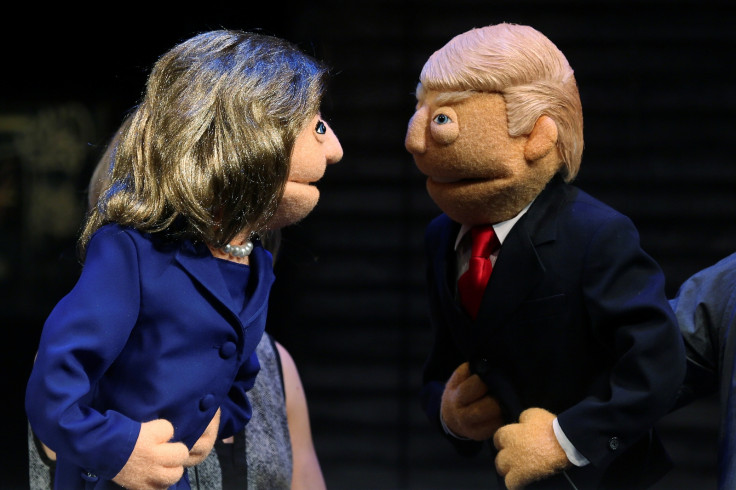Trump vs Clinton debate: It doesn't matter who the media and public judge as the winner
Debates provide the winner with a temporary boost in the polls that typically lasts no more than a week.
Some classic boxing matches, the great bloodbaths of legend, become so by consent. Others by accident. In some the fighters come to an unspoken agreement to fight in the proverbial phone booth, each resting their head on the other's shoulder while punching, trying to find the perfect liver shot or uppercut. Think of the legendary first fight between Diego Corrales and Jose Luis Castillo. In others, the ultraviolence emerges because one has not the skill or the will to evade the other's crude aggression, even though that would be the safer course. Think of all three of the unforgettable wars between Arturo Gatti and Mickey Ward.
Trump-Clinton I, while certainly not a classic, was nonetheless a good satisfying slugfest of the second type. Clinton immediately got dragged into the trenches of trade, as the pugnacious Trump, rapidly dropping all pretence of calm civility, pounded away at her two-faced attitude to the North American Free Trade Agreement (NAFTA) and other similar deals. She smiled superciliously, but looked desperately rattled. Referee Lester Holt tried to break them up on a number of occasions, but Trump proved adept at quickly turning in the clinch to land even more blows.
As Holt progressed the fight to the later rounds, however, Clinton hit her stride. After a discussion of crime and race in America the advantage perhaps still lay with her opponent, but the great counterattack was yet to come. She raked Trump with excellent left hooks to the head over his previous commitment to birtherism.
Thankfully for all of us, but most especially her, she stopped smiling. Her opponent compounded his misery with his lack of a prepared strategy to deflect these telegraphed yet powerful punches. The momentum of the fight had definitively shifted, and Clinton went in for the finish. She attacked Trump for the inglorious moments of his business career whilst keeping a strong focus on his dubious moral character. He slipped a few punches and blocked others, but in the eyes of most ringside judges, Clinton had surely moved ahead on the cards.
But no knockout was to be found, for either fighter, and ultimately the championship rounds were something of a disappointment. Trump came off the ropes to land some attractive combinations, the Libyan jab followed up by the heavy Iraq right cross. His opponent continued her dutiful body work, focusing on Trump's volatile temperament in the context of a nuclear-armed world. At the final bell both were clearly tiring, but in the last ten seconds Trump's strong, dark closing words gave the judges something to remember his efforts by.
Of course there are upcoming rematches scheduled. Trump would be well advised to be more focused, stick to the gameplan, and land his pre-prepared attack lines with greater frequency and vehemence. Clinton should smile much less, keep her power punches aimed at Trump's character and temperament, and aim for more stories and fewer statistics. Rematches in boxing rarely live up to the glory of the first duel, but perhaps Trump-Clinton II can buck the trend.

In reality, of course, debates don't matter. They provide the winner of the debate with a temporary boost in the polls that typically lasts no more than a week, as Mitt Romney found to his cost after winning the first debate against Barack Obama in 2012. In that context, who the media and the general public judge to have triumphed is almost entirely irrelevant. Both candidates said a number of stupid things that will no doubt keep the campaign consultants busy creating new negative adverts, but of course, as this campaign and the Republican primary has taught us, television adverts and other forms of big-ticket spending don't really move the needle either.
So feel free to revel in the marvellous spectacle that these debates make, free in the knowledge that it's all a hollow charade, a religion of oratory complete with founding myths, such as Nixon's supposedly election-losing catastrophe against Kennedy.
In this respect the debates resemble professional wrestling rather more than boxing, closer to scripted charades than a true fight with authentic consequences. Both Trump and Clinton played their respective characters well, with their traditional faults and virtues on full display, and if you were a fan of either to begin with, you probably didn't end the debate remotely disappointed. The many Americans who do not view either candidate favourably, however, may be rather less enamoured of this situation.
© Copyright IBTimes 2025. All rights reserved.






















